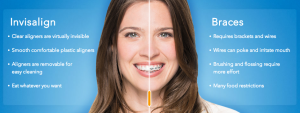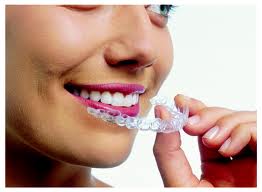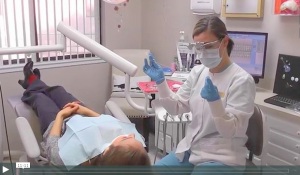The Food and Drug Administration has confirmed that it received five reports in the past few years suggesting that people died after drinking caffeinated energy drinks.
Kevin Goldberg, who is suing Monster Beverage represents the parents of a 14-year-old Maryland girl who died from heart arrhythmia after drinking two 24-ounce cans of Monster Energy.
The occurrence of energy drink-related ED visits among adolescents and young adults shows that these vulnerable populations experience negative health events after consuming energy drinks. In a recent report, the American Academy of Pediatrics discouraged use of energy drinks for children of all ages, including young athletes, and a joint study by the Centers for Disease Control and Prevention and the Institute of Medicine recommended that beverages available in schools should be caffeine-free. Energy drinks can also be problematic among young adults, especially college students, when used in combination with alcohol.
Energy drinks and alcohol a dangerous combo for college kids:
Combining heavily caffeinated energy drinks and alcohol is a trend, especially among college students. In fact, about half of energy drink users admit to combining them with alcohol while partying.
Mixing alcohol and energy drinks is a serious public health concern when compared to drinking alcohol alone. The FDA banned the sale of premixed alcoholic energy drinks such as Four Loco, saying they’re unsafe, but it’s easy for college kids to just mix their own.

credit: http://ic.steadyhealth.com/low_potassium_side_effects.html Children And Teenagers Should Never Drink Energy Drinks, Doctors Say
Top 10 Energy Drink Side Effects
Recent research in Australia has highlighted the risks with over-consumption of energy drinks. This data was gathered from 7 years of calls to the Australian Poisons Center.
Listed in order of most common to least common:
- Palpitations / tachycardia
- Tremor / shaking
- Agitation / restlessness
- Gastrointestinal upset
- Chest pain / ischaemia
- Dizziness / syncope
- Paraesthesia (tingling or numbing of the skin)
- Insomnia
- Respiratory distress
- Headache
What are ingredients of Energy drinks?
Most energy drinks are high in sugar in the form of high fructose corn syrup and/or cane sugar. Some use creative names to make their version of sugar seem “healthier”, like “natural cane juice”.
- High sugar drinks are linked to the obesity.
- Sugar causes tooth decay
- Increases risk of type 2 diabetes.
- The sugar in energy drinks causes blood sugar and insulin spikes, which later result in a “crash-like” feeling.
- Sugar is also somewhat addictive.
- More than 35mg of Niacin (B3) can cause flushing of the skin. Intake of 3000mg or more can result in liver toxicity.
- More than 100mg of B6 can cause sensory nerve problems (burning sensation) or skin lesions.
B Vitamins
Inositol
No known side effects have been reported, but ingesting large quantities has been linked to diarrhea. Large doses have been used to treat certain psychiatric disorders.
Ginseng
- Some studies have linked it to sleeplessness, while others refute this.
- Other possible symptoms include; low blood pressure, edema, palpitations, tachycardia, cerebral arteritis, vertigo, headache, insomnia, mania, vaginal bleeding, amenorrhea, fever, appetite suppression, pruritus, cholestatic hepatitis, mastalgia, euphoria, and miscarriage.
Glucuronolactone
While no side effects have been reported, there’s still debate on its safety. Many countries including Canada, England, Germany, and France have concluded that it is not a safety concern.
Artificial Sweeteners
If you drink sugar-free energy drinks you may be consuming any number of artificial sweeteners. There is always debate around the negative health effects of these (particularly aspartame).
However, all major health institutions regard them as safe.
Ginkgo Biloba
Gingko is a herb, and can cause some minor side effects in some people:
- nausea, diarrhea, headaches, dizziness, heart palpitations, and restlessness.
- Can interact with other medication such as blood thinners and anti-depressants.
- A recent study found that ginkgo caused thyroid cancer in rats.
L-Carnitine
Too much of this amino acid can cause vomiting, nausea, headache, diarrhea, stuffy nose, restlessness and sleeping difficulty.
L-Theanine
This amino acid is derived from green tea and many energy drinks and shots have begun putting “green tea extract” in their products.
It produces a different type of alertness than caffeine and there hasn’t been any scientific evidence of it causing adverse side effects. Some have reported feeling light-headed when consuming a dose of more than 300mg of L-Theanine.
What is Safe For You?
Energy drinks probably shouldn’t be a staple of anyone’s diet and coffee is certainly a healthier source of caffeine.
However, despite a number of alarming reports of overdose in recent years, for most people energy drink consumption is fine in moderation.
Many reported side effects are anecdotal – being reported from patient’s records. So, it’s hard to say which ingredient actually caused the problems if the patient was ingesting several combinations of these at one time.
Be Careful of Pre-existing Conditions
If you or your child has a pre-existing heart condition of any sort – they should not be consuming energy drinks.
In general it is better to avoid the larger drinks (i.e. Mega Monster has a massive 240mg caffeine in its 24 fl oz giant can), and stick to smaller 8 Oz cans.
If people drink energy products responsibly and use energy drinks occasionally, then most will likely avoid any of the energy drink side effects.
In dentistry experience and Continuing Education are everything. Dr. Parvin Carter has over 30 years of experience in Practicing General Dentistry and 25 years in Orthodontics. She has thousands of hours of advanced training. In 2000, Academy of General Dentistry awarded Dr. Carter a Certificate of Mastership (MAGD) in General Dentistry. According to the Journal of the Academy of General Dentistry, only 1% of US dentists achieve this high level of advancement. Dr. Carter is a Certified and Preferred Provider of Invisalign. She has successfully treated over 450 patients with Invisalign. Please see www.drparvincarter.com for more information.
Did you enjoy this blog? if yes would you send it to a friend please?
|












